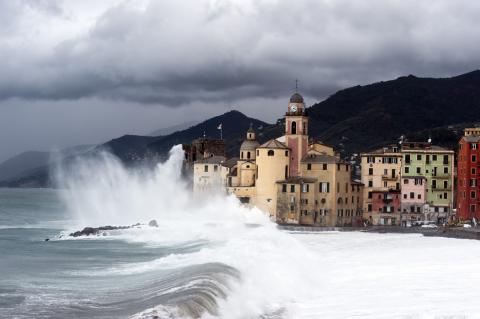University of the Balearic Islands
If you are the contact person for this centre and you wish to make any changes, please contact us.
Professor of Theoretical Physics at the University of the Balearic Islands in the Department of Physics & IAC3, and member of the Relativity and Gravitation group, which is part of the LIGO and GEO consortia and the e-LISA and Einstein Telescope projects
Research Professor at IMEDEA (CSIC-UIB)
Researcher at the Institute of Interdisciplinary Physics and Complex Systems (IFISC-CSIC-UIB)
Professor of Physics of the Earth in the Department of Physics at the UIB and researcher at IMEDEA
Lecturer of Theoretical Physics at the University of the Balearic Islands and member of the Relativity and Gravitation group, which is part of the LIGO and GEO consortia and the e-LISA and Einstein Telescope projects
Professor of Social Psychology of Gender in the Department of Psychology and head of the Gender Studies research group

Around 840 million women worldwide — nearly one in three — have been victims of physical, psychological or sexual violence by their partner or have suffered sexual violence outside of their relationship, a figure that has barely changed since 2000. This is one of the conclusions of a report led by the World Health Organisation (WHO) that analyses data from 168 countries between 2000 and 2023. For the first time, the study includes estimates of sexual violence outside of intimate relationships: 263 million women have suffered this type of assault since the age of 15, a figure that, according to experts, is well below the actual number.

International research in which CREAF is participating estimates that more than 1,300 bird species will disappear over the next two centuries, which is more than double the number of extinctions recorded to date - 610 species have disappeared in the last 130,000 years. The study, published in the journal Science, shows that, for island endemics, the proportional losses have been and will be even greater. The authors warn that when a species becomes extinct, its role in the ecosystem may disappear with it.

Intimate partner violence is associated with an increased risk of depression and miscarriage, according to a systematic review of the scientific literature published since 1970. Sexual abuse in childhood is associated with an increased risk of alcohol use disorder and self-harm, says the study published in Nature Medicine. According to its authors, this analysis of 229 previous studies reveals that intimate partner violence and childhood sexual abuse have a more extensive impact on health than previously described.

A study led by the University of the Balearic Islands proposes a mathematical model to understand quantitatively the impact of ideologies on the coexistence of various languages. The more groups of people with different linguistic preferences mix, the more challenging it becomes for different languages to coexist within the same society, say the authors, whose study is published in the scientific journal Chaos. The team says this model could be useful to design policies aimed at preserving minority languages.
The Royal Swedish Academy of Sciences has awarded the Nobel Prize in Chemistry 2023 to Moungi G. Bawendi, Louis E. Brus, and Alexei I. Ekimov "for the discovery and synthesis of quantum dots." Quantum dots are tiny nanoparticles that diffuse their light from televisions and LED lights, and can also guide surgeons when removing tumor tissue, among many other applications.

The International Pulsar Timing Array (IPTA) consortium has discovered evidence for the existence of a cosmic background of gravitational waves. The results, published by different IPTA consortia in several scientific journals, would show that this cosmic background would be the result of collisions of supermassive black holes. In 2015, researchers from the LIGO and Virgo collaborations made the first direct observation of gravitational waves caused by the collision of two stellar-mass black holes. These waves oscillate several times per second. What the consortia have now found are gravitational waves emitted by supermassive binary black holes at the centre of galaxies, waves that oscillate on timescales of many years.

Storm surges, one-off events associated with storms that can cause flooding, are rare and highly destructive phenomena. A paper published this week in Nature finds that they have increased since 1960, comparable to the increase in average sea level rise over the same period.
The authors, led by Spaniard Francisco Calafat of the National Oceanography Centre in Liverpool, UK, statistically analyse observations of extreme tides from 79 tide gauges on European coasts over the period 1960-2018, and compare them with climate models.
Their results point to an increase in extreme sea levels in the future, something the authors say has implications for coastal planning. So far, the most widely accepted hypothesis is that the frequency of such extreme storm surges would not increase.